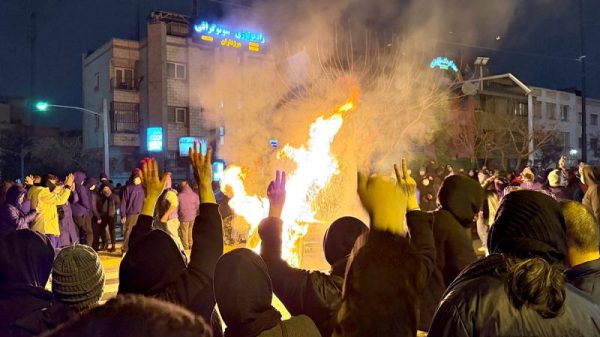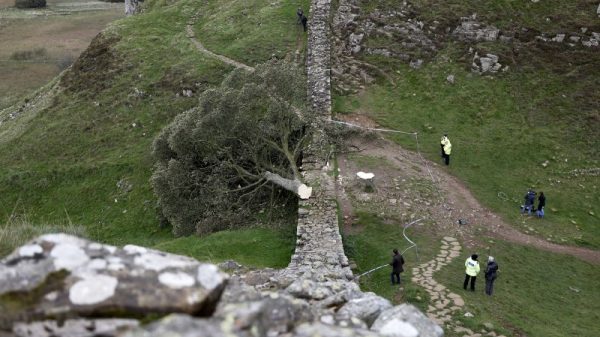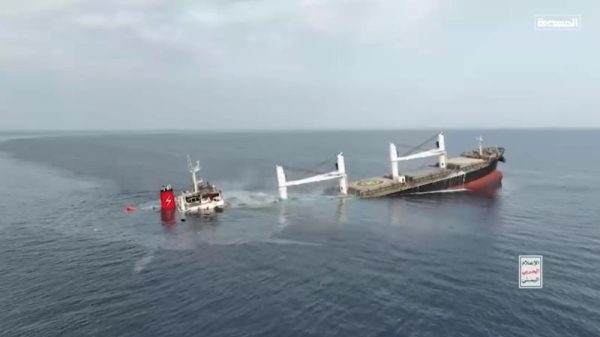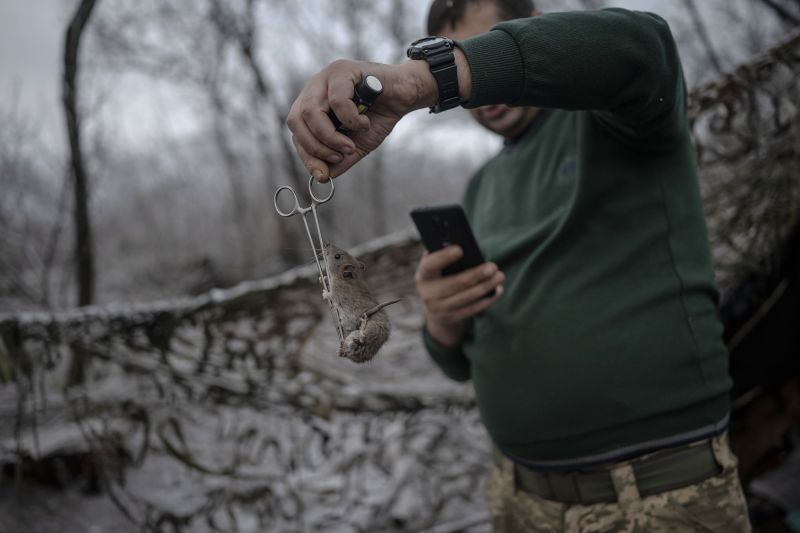The frontlines of Russia’s war in Ukraine have become infested with rats and mice, reportedly spreading disease that causes soldiers to vomit and bleed from their eyes, crippling combat capability and recreating the gruesome conditions that plagued troops in the trench warfare of World War I.
A Ukrainian servicewoman, who goes by the call-sign “Kira,” recalled how her battalion was beset last fall by a “mouse epidemic” while fighting in as the southern Zaporizhzhia region.
The infestations are due partly to the change in seasons and mice’s mating cycle, but are also a measure of how the war has become static, after Ukraine’s counteroffensive was largely rebuffed by heavily fortified Russian defenses. Amid another harsh winter, mice are foraging along the nearly 1,000-kilometer (621-mile) frontline, spreading disease and dissatisfaction as they search for food and warmth.
Kira said she tried everything to rid their bunkers of mice: sprinkling poison, spraying ammonia, even praying. Nearby shops stocked up on anti-mouse products and made a killing, she said. But, as the mice kept coming, they tried other methods.
“We had a cat named Busia, and at first she also helped and ate mice. But later there were so many of them that she refused. A cat can catch one or two mice, but if there are 70 of them, it’s unrealistic.”
Videos shared on social media by Ukrainian and Russian soldiers showed the extent of the infestations on the frontlines. Mice and rats are seen scurrying around under beds, in backpacks, power generators, coat pockets and pillowcases. One shows mice pouring forth from a Russian mortar turret like bullets from a Browning.
In another, a cat tries to swipe a mouse on an armchair, before a soldier taps the top of the seat and dozens more cascade down. The cat, hopelessly outnumbered, admits defeat and falls back.
Ukraine’s military intelligence in December reported an outbreak of “mouse fever” in many Russian units around Kupiansk in Kharkiv region, which Moscow has been trying to claim for months. The report said the disease is transmitted from mice to humans “by inhaling mouse feces dust or by ingestion of mouse feces in food.”
The result, Ukraine’s Defense Intelligence said, is that “‘mouse fever’ has significantly reduced the combat capability of the Russian soldiers.” It did not say whether Ukrainian troops had been similarly affected.
The Ukrainian authorities did not name a specific condition as striking Russian troops, but there are a range of diseases associated with living near rodents that have similar symptoms, including tularemia, leptospirosis and hantavirus.
The report was reminiscent of those from World War I, where the putrid pileup of waste and corpses allowed “trench rats” to breed rapidly. Rats are nocturnal and are often busiest while soldiers are trying to rest, causing huge stress.
Robert Graves, an English poet who fought in the trenches, recalled in his memoirs how rats “came up from the canal, fed on the plentiful corpses, and multiplied exceedingly.” When a new officer arrived, on his first night he “heard a scuffling, shone his torch on the bed, and found two rats on his blanket tussling for the possession of a severed hand.”
In World War I, the rat population swelled when the conflict stagnated. And there are fears that Russia’s war in Ukraine has done the same. The head of Ukraine’s armed forces, General Valery Zaluzhny, told The Economist late last year: “Just like in the first world war we have reached the level of technology that puts us into a stalemate.”
“The winter crops sown in the fall of 2021 were not harvested in many places in 2022 and gave generous self-seeding. The mice that bred on it survived the very warm winter and went on to harvest a new crop,” he said. The war has also dispersed natural predators, allowing mice to propagate more freely.
As well as causing anxiety and disease among soldiers, mice also ravage military and electrical equipment. When working as a signalman and living separately from other fighting troops in Zaporizhzhia, Kira said mice “managed to climb into metal boxes and chew through wires,” disrupting communications.
“The mice chewed everything: Radios, repeaters, wires. Mice got into cars and chewed on the electrical wiring, so the cars wouldn’t run, and they also chewed on tanks and wheels,” Kira said. “The losses from the mice in our dugout alone amount to one million hryvnia [$26,500].”
Zahorodniuk stressed the damage can be critical, “as lost communication may cost lives.”
As Ukraine weathers another winter, the problem will likely get worse before it gets better. “It will get colder and colder, and they will go into the trenches more and more. The situation will not change until they all go through this,” said Zahorodniuk.
In World War I, soldiers could not solve the trench rat problem. Instead, they killed rats for their sport. Trying to spike one on a bayonet became a form of entertainment. The population did not decrease until the war ended. But Zahorodniuk warned Ukraine should not let the same happen again.
“The fight against them should be organized and not rely on soldiers and volunteers who are not imagining ways to fight. This is wrong. After all, this is a matter of the combat capability of the army. We have to take care of our soldiers.”






































